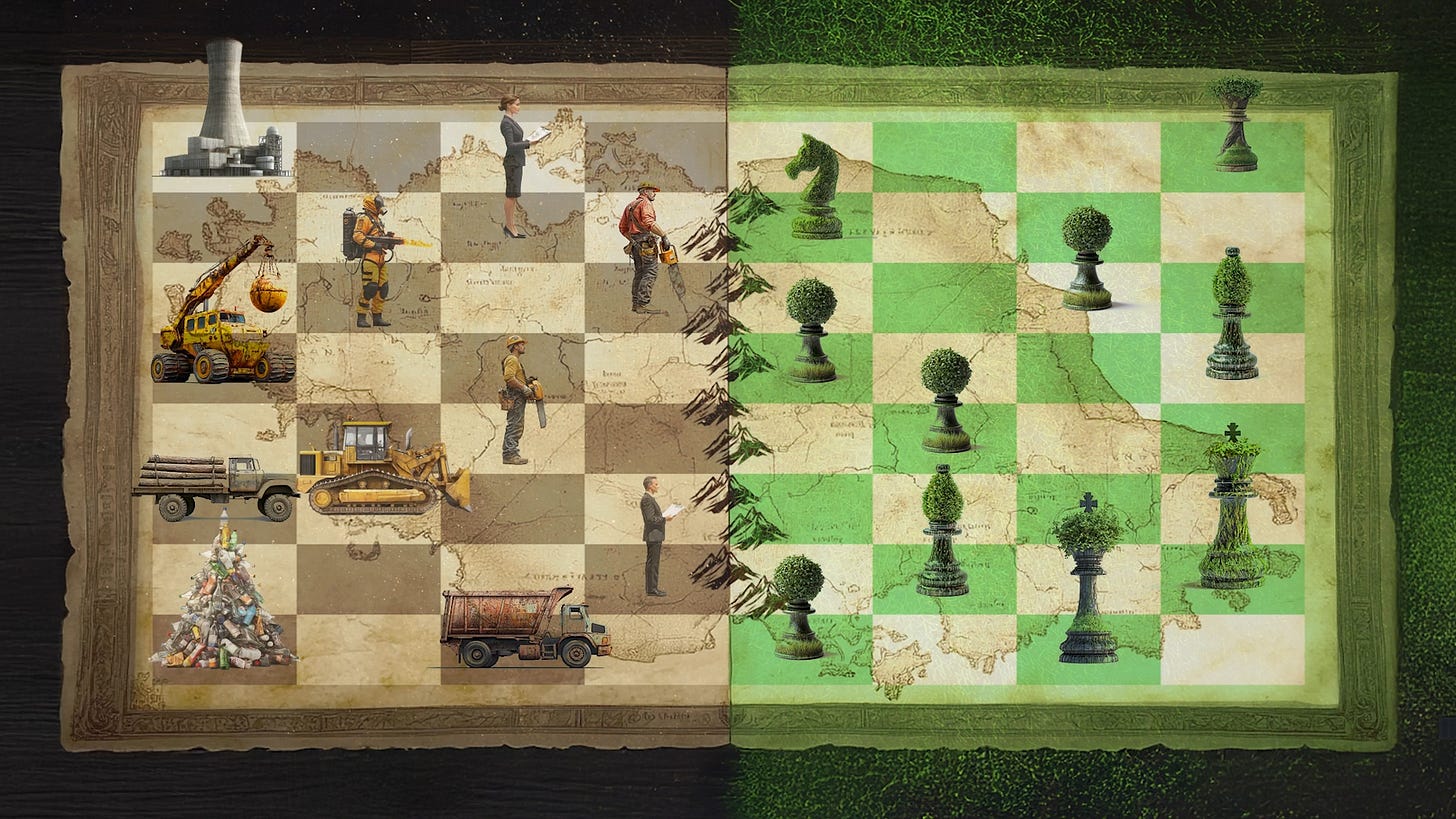The Battles of Our Time
Frankly #76
In today’s complex geopolitical landscape, battles and tensions seem to exist everywhere we look. Power shifts and compounding crises are opening up new landscapes for change. As we inhabit and define an unpredictable world order, we will increasingly face “battles” at the individual and community level, too. Now comes the real work for pro-social, pro-future, systems-aware humans.
In today’s Frankly, I describe some of the battles - or polarities - of our time: the tensions and dichotomies we face from the global macro level all the way down to the level of individual metacognition. I reflect on how each of these polarities contribute in their own unique way to the overarching battle of power versus life. By harmonizing and better navigating these polarities we can move away from the extremes embedded in the Superorganism dynamic and instead sow the seeds for cultures in service of life which can flourish in the wake of the existing world order.
What are the key polarities that define this wider struggle between power and life? And how might we navigate these tensions in the trade off between who we have become and who we might yet be, as individuals and as humanity as a whole?
In case you missed it…
Last week, I spoke with Earth scientist Carlos Nobre to explore the critical challenges facing the Amazon. We delved into the rainforest’s unique ecological dynamics, the devastating impact of deforestation and wildfires on its ability to function, and how the health of the Amazon directly influences the climate of the entire world.
If you appreciate The Great Simplification podcast…
Be sure to leave a review on your preferred podcast platform! Leaving reviews helps the podcast grow, which helps spread awareness of our systemic situation from experts in ecology, energy, policy, economics, technology, and community building so that we can better understand - and respond to - the challenges of the coming decade.
The Great Simplification podcast is produced by The Institute for the Study of Energy and Our Future (ISEOF), a 501(c)(3) organization. We want to keep all content completely free to view globally and without ads. If you’d like to support ISEOF and it’s content via donation, please use the link below.




Oh Nate this is so helpful to someone like me. I studied history and anthropology in college and then went right into the peace corps. Followed by graduate school and 25 years in the Foreign Service with the State Department. After I retired it took me several years to deprogram myself from USG-speak and various Embassy mission performance plans, which were atrocious, especially during the lead up to Iraq. I worked at a couple of universities, took a course on indigenous worldviews, did a lot of reading, and became a human being again. Being back in the U.S. has been challenging since people overseas are nicer, kinder, much better informed, and not so full of themselves!
I started following the great simplification almost two years ago and have greatly benefitted from your interviews and roundtables (OMG they are all so good!!) and the Frankly’s. My husband and I are raising our two Gen Z granddaughters which makes the information you present even more relevant and important as we try to help them be ready to navigate their futures. Have been wanting to share this for some time. Thx much. Aleta
I so appreciate how you reframed these as polarities that can be harmonized. Whether we think of it as the Law of Three, the Hegelian Dialectic, or the integral approach of Transcend and Include, there's so much more we can access when we shift from oppositional thinking to synthesis.
I know I'm not the only person who has an aversion to the language of battles and war, but even that presents a polarity that I now believe must be synthesized, integrated, harmonized. These are the times we are living in, and the battles and the wars we are within look very different than the historical record.
So I am very grateful that you both had the morning after reflection, and also that you shared this with us all the same. There is a lot of wisdom in how you organized your thoughts here for us.
In light of the election, I've been revisiting Meg Wheatley's book "Who Do We Choose To Be?" this week and finding more guidance and wisdom in the warrior archetype than I personally have in the past, as she frames what we are called to as being "Warriors of the Human Spirit." I so deeply appreciate your emphasis on effectiveness here and in all of your work. Whoever we choose to be, whatever roles we take on, be they warriors, hospice workers, midwives, or scholarly wizards, or any of the other archetypes our times call for, I'm grateful that the work you are doing is bringing much needed clarity, perspective, and essential questions for us to work with as we move into the times to come.